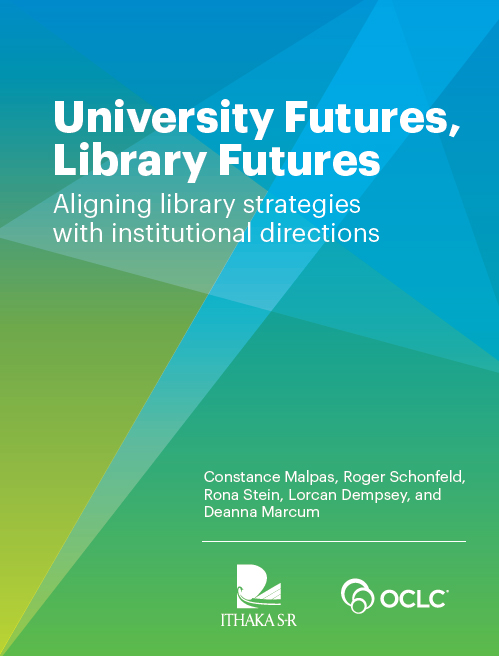University Futures, Library Futures
University Futures, Library Futures: Aligning library strategies with institutional directions
University Futures, Library Futures: Aligning library strategies with institutional directions establishes a new framework for understanding the fit between emerging library service paradigms and university types.
Supported in part by the Andrew W. Mellon Foundation, project leads Constance Malpas, Lorcan Dempsey, and Rona Stein from OCLC Research and Roger Schonfeld and Deanna Marcum of Ithaka S+R, examined the impact of increased institutional differentiation in universities on the organization of academic libraries and the services they provide.
As libraries move away from a collections model in which libraries measure their success by how large their collections are, this report puts a framework around library services, explores emerging patterns in different institutional settings, and gauges the importance of these services areas—now and for the future—according to surveyed library directors.
The work has three main components:
- a working model of US higher education institutions that is characterized by educational activity (Research, Liberal Education, Career-directed) and mode of provision (traditional-residential and new-traditional-flexible)
- a library services framework that covers nine key areas
- comparison of the above two to test the hypothesis that the services portfolio of libraries map onto the institutional priorities of their host university
Read the full report for the findings of this work.
Purchase a professionally printed copy of the report:
Suggested citation:
Malpas, Constance, Roger Schonfeld, Rona Stein, Lorcan Dempsey, and Deanna Marcum. 2018. University Futures, Library Futures: Aligning Library Strategies with Institutional Directions. Dublin, OH: OCLC Research. https://doi.org/10.25333/WS5K-DD86
For more information:
